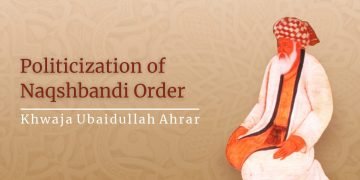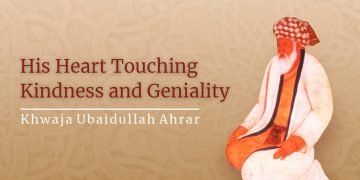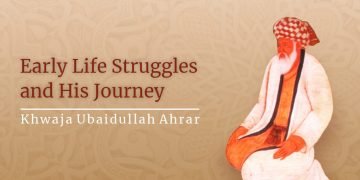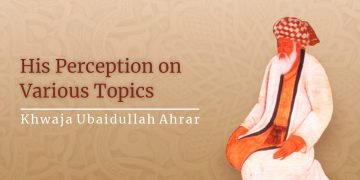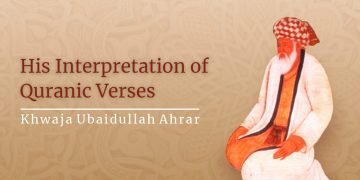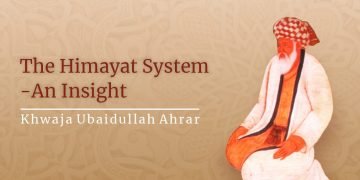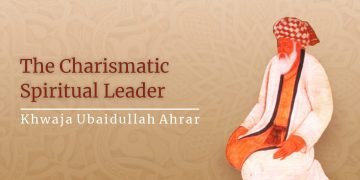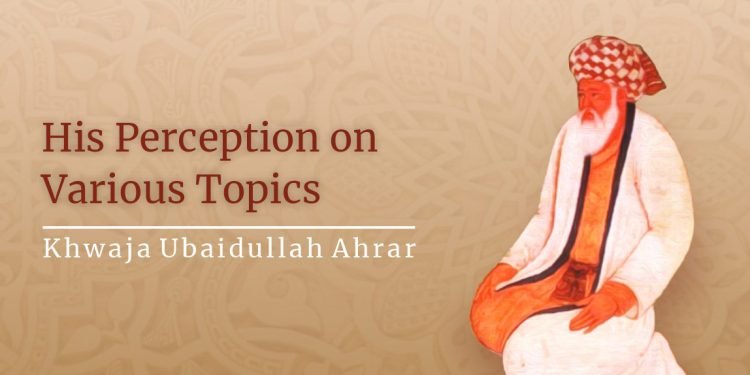Khwaja Ahrar’s Worldly Wisdom, He was a man of wisdom God gave him the gift to perceive things with such a deep insight that he could interpret the most difficult matters effortlessly and would explain them in such an entrancing and simplest manner to his audience. Whether it was religion, worldly issues, spirituality or any other topic, history books are filled with the astute interpretation of venerable Khwaja on all these subjects. He would give examples from the universe and everyday life to elucidate the matter in question so that the listeners would better understand and remember what he explained.
On traveling he said,
“Once Sheikh Baha-ud-Din Omer asked me a question if it is right to travel for the spiritual quest or stay at the same place?” Khwaja Ahrar was very observant of mannerism and politeness so he initially refused to answer the question, but on Sheikh’s persistence, he replied that “I started traveling for my quest, to initiate the journey but my heart only found confusion.” He further said that travel can be useful only if the traveler knows his boundaries and has achieved self-control. So it is better for a person to stay at a place, observe the behavior of his companions, friends, and enemies; improve his demeanor before stepping out on a journey.
On Self-Sustenance
On the question of self-abasement, Khwaja Ahrar opined, “To accomplish the highest level of non-existence, the spiritual wanderer must observe self-sustenance and humility to the point that the greatness of Allah overshadows everything else even your own being.”
Khwaja Ahrar always taught his followers’ self-abasement and humility as it was the most significant quality required to be on the right and spiritual path. A person can’t be worthy of God’s love until he/she is humble and has a sense of self-accountability.
On Trails and Troubles
On the question of trials and tribulations, Khwaja Ahrar said that these are essential for the purity of a heart. He further quoted that the trails and troubles play an effective role in weakening the evil between the Lord and his servant. This he elucidated by quoting saying of the Prophet (Peace be upon him), “The greatest troubles befell on the prophets and then on the saints…”
Trials and tribulations are a way to turn to God for guidance and mercy, as He never leaves a person’s side during difficult or bad times.
On God’s Astute Devices
Khwaja Ahrar gave an example to explain this topic, he said suppose someone is going on a journey and he passes by a sleeping dog, so that person wakes the dog to pass by with ease and convenience. When the same person has a glance at that dog after continuing the journey that feeling of being blessed is actually the Divine catch and he should be grateful to God for His device or ideas.
There are many unexplained mysteries in this world, unfound answers to questions, one should always trust in the ability of the great planner as He knows the best logic for everything.
On Alliance with a Group
Khwaja Ahrar gave advice to his followers not to get allied with a group that dominates them with their vested and selfish desires, as they are likely to ruin their allies with their self-centered passion. He also added that groups or companions who waste your time are also not worthy of fraternity.
So one should be careful in choosing a company, it can be really destructive for a person to have ties with people who can take advantage of others for their own unruly obsession and desires.
On Remembrance
On this topic, Khwaja Ahrar gave a thoughtful comment, he said, “He who has already given in his heart to God doesn’t need remembrance.” The intent for remembrance he explained is to strengthen the relationship with the beloved, remember Him.
When one’s heart is already filled with God, that person doesn’t necessarily have to chant God’s name all the time. What’s in the heart gets to the soul and becomes a part of the inner self.
On Intellect
On the subject of “Intellect”, Khwaja Ahrar said that for a person the value of intellect depends directly on the understanding of the realities of the Sufi community.
Intellect is about comprehending what’s not visible to the eye, realities that might not be obvious but exist. Believing in what exists without seeing it, this comes from the mind that thinks, observes and doesn’t judge instantly.
On Work
Khwaja Ahrar always encouraged his followers to have a purposeful life. He wasn’t the conventional Sufi leader who would spend days and months in seclusion, he was a great businessman and he motivated Muslims of those times to invest time and effort in trade and agriculture.
He said, “It is really important to love work and not ease or staying idle. Work is related to the exploration, journey or quest while ease isn’t related to it.”
On Valuable Words
Khwaja Ahrar once said, “Fine or valuable words are the ones that a listener comprehends and retains and these are the words of the saints.”
When one listens to the words of intellect, they definitely make an instant impact, they touch the heart of a listener and such words are usually uttered by saints. They speak from the heart and therefore that speech is so interest stirring and inspiring for the audience.
There are so many other topics like refinement, newness, science, and marriage that have been discussed quite tastefully by Khwaja Ahrar. He understood the mindset of his audiences; he used the language that was comprehensible and compelling. The way he explained various topics is commendable. The depth of his knowledge and his perception is quite evident from his enlightening comments on an array of subjects. He made various confusing questions quite simplified; the details of his interpretation and comments are very useful even today. One can always turn to his enlightenment for comprehending everyday problems, understanding the challenges of self-exploration and much more.


